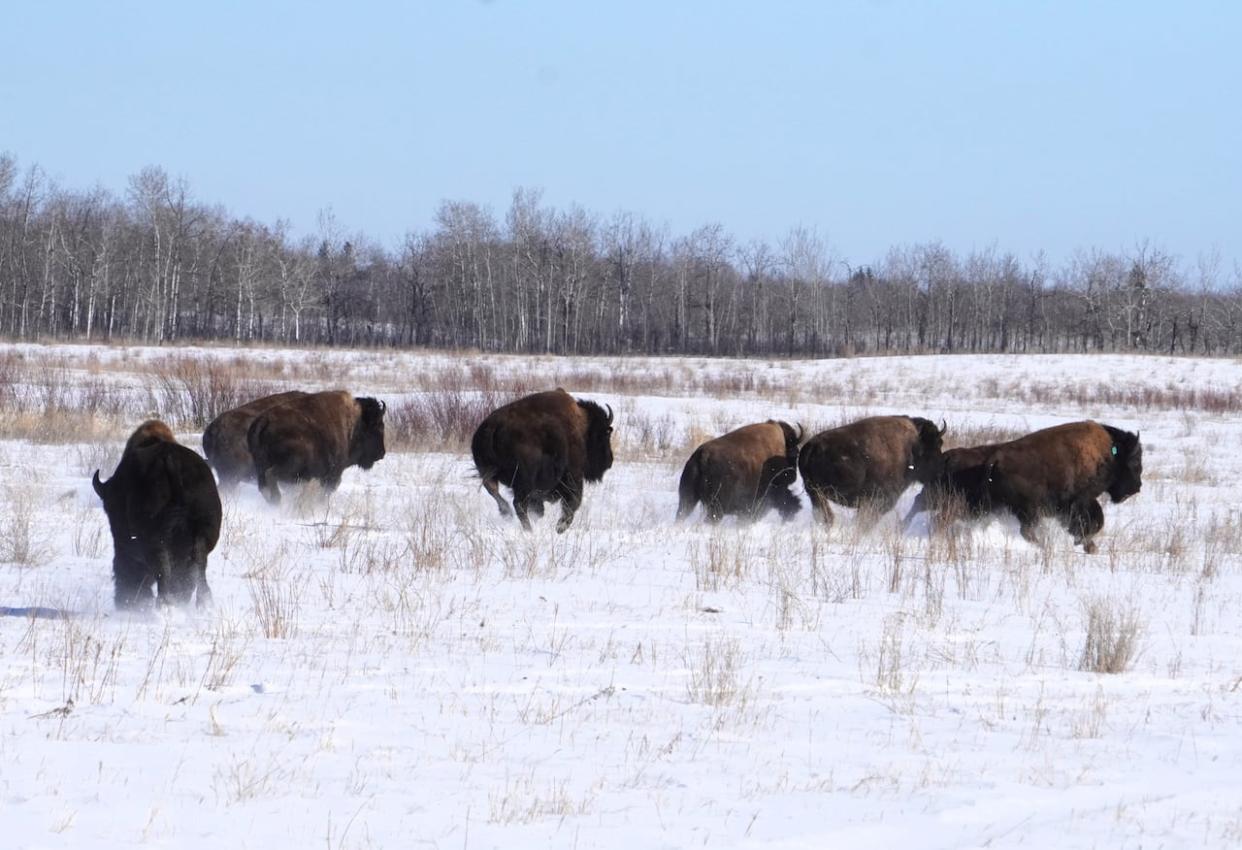Buffalo herd released on Witchekan Lake First Nation in Saskatchewan

Buffalo are now back on Witchekan Lake First Nation after a long absence.
Federation of Sovereign Indigenous Nations (FSIN) Chief Bobby Cameron said Monday that his team worked with a bison rancher in southern Alberta to acquire two bulls and 20 pregnant cows.
"They are home. It's going to restore that feeling of hope as First Nation people, will ensure that our little ones and the future generations will understand who they are. It's positive and powerful," he said.
The animals were released onto the First Nation, which is about 160 kilometres northwest of Saskatoon, on Monday. Once they reproduce and the herd grows big enough, Witchekan Lake plans to give some as gifts to other First Nations, Cameron said. Eventually, he said, the goal is food sovereignty.
"It's going to come to a point where we don't need to rely on anybody but a buffalo to feed in the cold winter months," he said.
FSIN said in a news release that buffalo were a main source of food, clothing and tools for many First Nations for a long time, and still carry cultural significance with them today.
"The sacred buffalo has been a major part of First Nation people's lives since time immemorial. Long before any government," Cameron said.
"It's a sacred animal. It always has been. And we honour it. We cherish and we love it and we're gonna respect the buffalo here for several generations. Our intention is that they're around forever."

